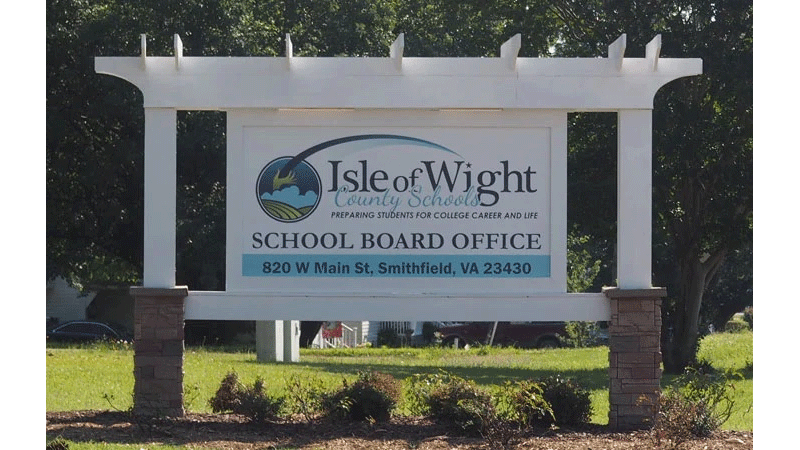City faces trash fee hike
Published 7:45 am Wednesday, December 31, 2008
FRANKLIN—Taking out the trash is a weekly chore.
And for the next five months, it will probably cost city residents an additional $10 to $12 a month for it to be disposed of by the Southeastern Public Service Authority.
A rate increase seems inevitable for Franklin and five other communities served by SPSA as the authority struggles to continue doing its job despite reduced tonnages, competition from private haulers, massive debt and separate deals with Suffolk and Virginia Beach that have come back to haunt the authority.
Rowland L. “Bucky” Taylor, SPSA’s executive director, was on hand for a public meeting with the city council and residents on Monday.
Taylor, who previously served Franklin as city manager and was also the county administrator for Southampton, said SPSA is facing a $16.1 million revenue shortfall. The authority currently has $234 million in outstanding debt; with interest payments, SPSA is projected to pay $314 million in debt service by 2018.
Taylor said there is a “good likelihood” that SPSA will decide to raise tipping fees at its Jan. 28 meeting for six of the eight localities it serves: Isle of Wight and Southampton counties, and the cities of Franklin, Portsmouth, Chesapeake and Norfolk.
The tipping fee for those six communities, which account for just 21 percent of SPSA’s waste stream, is now $104 per ton. But it could be in the $240 to $260 range for the last five months of the authority’s fiscal year, which ends on June 30.
“The chances are better than 50/50,” Taylor said, adding that a public hearing on the tipping fee issue is scheduled for 9:30 a.m., Jan. 7 at SPSA’s offices in Chesapeake.
Assuming that SPSA raises the tipping fee that high, the five-month-long increase would cost Franklin an additional $339,000.
Separate deals struck with Suffolk and Virginia Beach guarantee that those two SPSA communities, two of the fastest-growing cities in the state, won’t be paying higher tipping fees anytime soon.
Under the terms of Suffolk’s arrangement with SPSA, the city does not pay a tipping fee for municipal solid waste in exchange for hosting the regional landfill.
Meanwhile, Virginia Beach signed a contract with SPSA that caps the city’s tipping fee, through 2015, at $53.88. Auditors reported that cap saved the city almost $6.8 million during fiscal 2008.
That news infuriated Franklin City Council members and citizens alike.
“It seems like to me that to get Suffolk and Virginia Beach to play ball, we’ve got to get their attention. Sometimes it takes a two-by-four to get there,” said Councilman Benny Burgess, who represents Ward 2. He then asked Taylor, “Do we have a strategy to develop a two-by-four to bring them to the negotiating table?”
Ward 1 Councilman Barry Cheatham, who also represents Franklin on SPSA’s Board of Directors, said he approached a Suffolk city councilman at a previous SPSA meeting and asked if that city would be willing to pay more to help the authority pay off its debt.
“He basically said, ‘The (Suffolk) city council would tell you to go to the devil,’” Cheatham said. “‘We’re not going to pay anything. (Our) contract says we don’t have to, we’re not going to.’”
Cheatham said he then countered that “maybe we need to look about the next landfill being someplace else.”
Cheatham then briefly touched on a proposed “rural plan” where Isle of Wight County, Southampton County and Franklin would form an alliance among themselves after their contracts with SPSA expire in 2018.
“But you’ve got to get to 2018,” Cheatham said. “Right now there are contracts with each entity that last until 2018. So you can’t do anything right now, as Chesapeake proved when they tried to get out of it and went to court. The court said ‘you can’t break this contract.’ That’s why we couldn’t just tell Suffolk and Virginia Beach ‘forget about you, we’re going to leave you to the side,’ because we’ve got a contract.”
“It’s a bad contract, but we have a contract,” Cheatham added.
Burgess questioned whether SPSA’s contracts with Suffolk and Virginia Beach could be challenged under the current circumstances.
“Most attorneys will tell you that there’s not a contract that can’t be broken,” Burgess said. “I can’t believe that the SPSA attorney was that great that he had a 100 percent, iron-clad contract.”
But Taylor countered, “When you’re looking at any kind of pressure, on any jurisdiction, SPSA’s not the one that’s going to bring that pressure. We don’t have any pressure. What are we going to bring? We’ve got to abide by our contract.”





